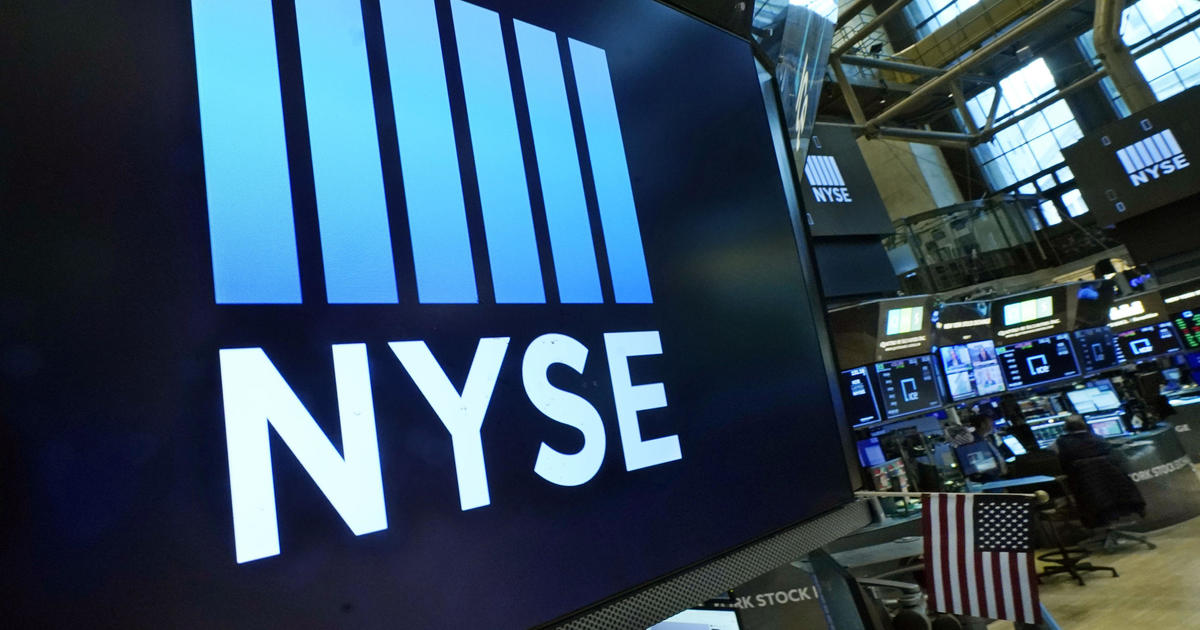By Alexander Lee

View of NYSE [CBS News]
On Monday, Wall Street stocks made a comeback from early declines, ending the afternoon on a positive note. This shift comes as investors keep a close eye on the economy and anticipate several retail updates scheduled for this week.
As of 3:50 p.m. Eastern, the S&P 500 saw a 20-point increase, equal to 0.5%, bringing it to 4,300. This surge continues the index's four-week rising streak, resulting in a 13% gain in the third quarter, although it is still down overall for the year. The Dow Jones Industrial Average experienced a 162-point or 0.5% rise to 33,922, and the Nasdaq went up by 0.7%. In addition, the Russell 2000 index, which represents smaller company stocks, rose by 0.2%.
During the afternoon, all but two of the S&P 500's 11 sectors were in the green, with technology stocks taking the lead. Retailers and other consumer spending-dependent companies also experienced growth, with Visa's stocks increasing by 2.5% and Costco's by 1.2%. Moderna's stocks rose by 2.4% following British regulators' approval of its updated COVID-19 vaccine.
Tuesday will see Walmart and Home Depot releasing their retail earnings reports, followed by Lowe's and Target on Wednesday. The U.S. markets took a hit three months ago when first-quarter financial reports from major retailers highlighted a significant shift in American spending, as well as struggles stemming from high inflation on food and fuel, coupled with increased costs due to global supply chain disruptions.
Additionally, this Wednesday, data on U.S. retail sales for July will be released, with economists predicting a modest 0.2% growth from June, which saw a 1% increase largely due to higher gas prices. Despite this, Americans continue to support the economy with their spending, although some economists argue that this support mainly comes from higher-income households.
In response to increased costs on items ranging from food to clothing, businesses have raised their prices. The inflation pressures have been exacerbated by Russia's invasion of Ukraine, which has driven up energy and key food commodity costs.
The market had a rocky start as investors reacted to the news that China's central bank cut a key interest rate on Monday to boost sagging economic growth during a politically sensitive period when President Xi Jinping is seeking to extend his power. The People's Bank of China reduced its rate on a one-year loan from 2.85% to 2.75% and added an extra 400 billion yuan ($60 billion) to the lending markets following government data that showed weakened factory output and retail sales in July.
This development is a red flag for markets that are already on edge due to record-high inflation and recession fears in the U.S. and other countries. China is the world's second-largest consumer of crude oil, so this news has impacted energy prices, with U.S. crude oil prices dropping by 3.3%. This drop has significantly affected energy stocks, with Chevron experiencing a 1.9% decline.
On the previous Friday, Wall Street ended a turbulent week of trading with a broad rally, resulting in the S&P 500's fourth consecutive weekly gain. These gains were further boosted on Wednesday when a report indicated that inflation had cooled more than expected in the previous month, and a Thursday report revealed that wholesale inflation had also slowed more than anticipated.
These reports have raised hopes among investors that inflation may be nearing its peak, potentially leading the Federal Reserve to ease off on its interest rate hikes, which is its primary tool for combating inflation. However, investors have been cautioned not to set their expectations too high for a decrease in Fed hikes.
Solita Marcelli, chief investment officer for the Americas at UBS Global Wealth Management, warns that inflation can be unpredictable, and there's a possibility that the Fed may need to increase rates more than expected. This potential increase could quickly reverse the current positive sentiment in the market. As a result, investors should brace themselves for more potential volatility in the coming months as the weather cools. The aggressive pace of rate hikes has also raised concerns among investors that the Fed could inadvertently push the economy into a recession.
Reporter Alexander Lee
alexanderlee_24@newsyn.co.kr

